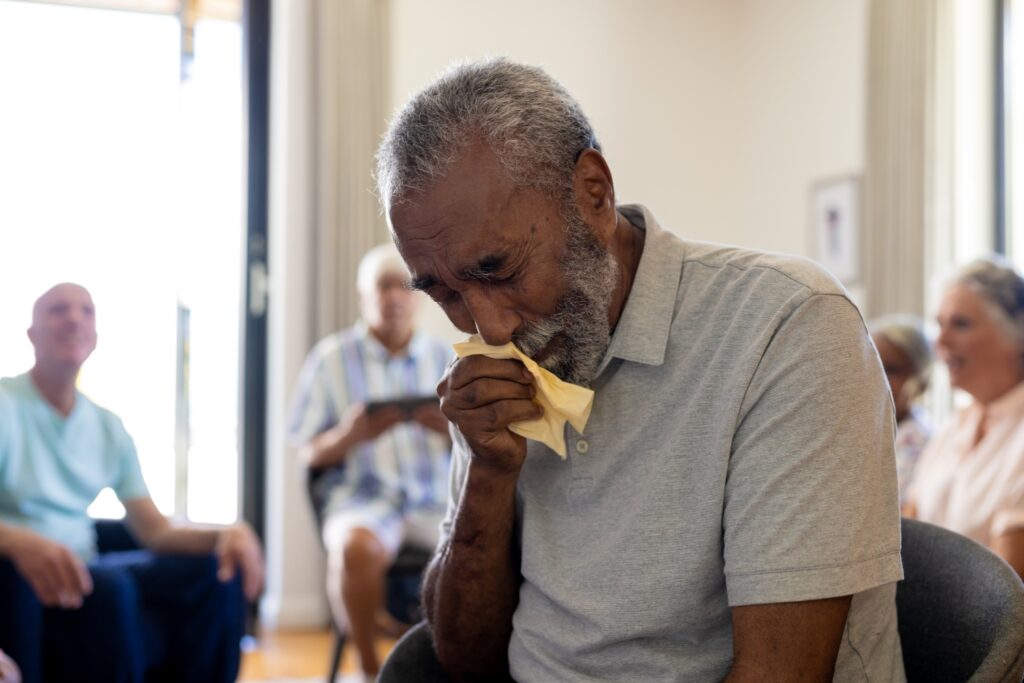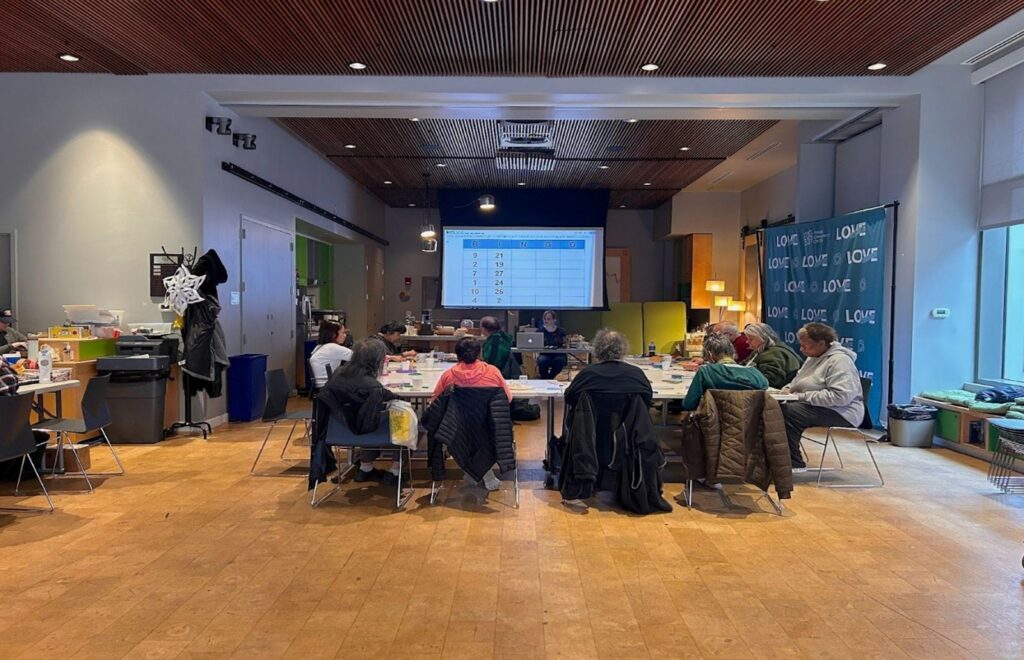Menopause is the cessation of ovarian function, defined by 12 months with no menstrual periods, typically around the age of 51. There are many clinical situations that can make determining the time of this transition more confusing (after hysterectomy, for example). And, it’s important to understand the different types of menopause, for example: surgical menopause (when the ovaries are removed), results in a sudden cessation of ovarian function; early (and premature) menopause, when this cessation occurs at a young age; late menopause; and induced menopause from medical treatments for breast cancer.
Hormone testing is not usually necessary but can be helpful if the timing is confusing. We have no predictive models or tests to help us determine when the final menstrual period will occur. Many symptoms begin years before the final period.
In many cases, perimenopause—the years leading up to this transition and the year after the final menstrual period—can bring many disruptive and unpleasant symptoms. The menopausal transition is quite variable, with some people experiencing few symptoms, while others experience many bothersome symptoms that significantly impact their quality of life (hot flashes, joint pain, sleep disruption, migraine, anxiety, depression, irritability, palpitations, skin changes, dry eyes, fatigue, muscle loss, central weight gain, bloating, vaginal dryness, urinary urgency and frequency, pain with sex and many more).
For some, the symptoms of perimenopause can be worse than those of menopause. For others, the reverse can be true. For still others, menopause can bring a new sense of calm and an improvement in some mood symptoms. Symptoms can vary across ethnicities and symptom duration can vary tremendously, with some people experiencing bothersome symptoms for far more than a decade. But even if symptoms are well tolerated or almost nonexistent, it is critical to understand the impact this physiologic change has on so many organ systems: bones, heart, brain, skin, joint, gut, urogenital tissues, vasculature, eyes and almost every tissue in the body.
‘It’s not over, you’re in it for the rest of your life.’
Changes can be progressive and increase the risk for important medical conditions and complications that can significantly impact not only the quality of life but longevity and risk of disability and death. Some changes, like those to the genitourinary structures, can be progressive, if not treated, and significantly impact sexual function and put people at increased risk for urinary tract infections. The bone and muscle loss that occurs in menopause increases the risks for fracture. Changes in the cardiovascular system accelerate the risks for cardiovascular disease. Metabolic changes after menopause increase the risks for obesity and diabetes.
Menopause is a natural process for most people (unless surgical or medical), and a unique process for each individual. There is not one right way to manage it; however, many treatment options exist, and these can be chosen based upon someone’s particular situation, experience, preference, philosophy, risk factors and risk tolerance.
After menopause, we see acceleration in many disease processes and aging due to the lack of estrogen. Genetic and environmental factors also play a large role in aging and risks for certain diseases. Some people may want to treat these symptoms and avoid many of these changes (in perimenopause and in menopause), while others may feel more comfortable doubling down on healthy habits and lifestyle changes, with more acceptance of how bodies change with age.
Some people may need help with some of the more transient symptoms in perimenopause, while others may want treatment for many decades. Symptoms also vary and evolve throughout this process. Menopause is not a static process and treatment decisions can evolve as well. Menopause is not “over” with the last menstrual period. I am often asked: “When will it be over?” and I explain: “It’s not over, you’re in it for the rest of your life.”
But for many people, some symptoms, like hot flashes, will improve or resolve with time. For others they may last 20 years or more. I often see my patients choose one approach and after several years, they gain a new perspective and want to change tactics. This is why I believe menopause is one of the most fascinating and important areas of medicine. A clear understanding of the importance of menopause and the timing of menopause is necessary to make informed decisions about our health. Options vary and may be more limited by certain medical conditions, or if it has been a decade or more since this transition.
Potential Treatments
Treatment options include hormonal and non-hormonal options. Lifestyle changes (yoga, exercise, sleep hygiene and healthy eating habits) can have a significant impact on symptoms and risks for developing health issues like diabetes, obesity, osteoporosis and cardiovascular disease. There are behavioral health strategies such as cognitive behavioral therapy (CBT) that can alleviate symptoms and symptom perception. Certain non-hormonal medications can be very helpful for mood symptoms, hot flashes and sleep. There are local options and systemic (think whole body) options. Tissue-targeted options can focus on certain symptoms or organ systems. Novel options can focus on the temperature regulatory mechanism of the brain. Newer selective hormonal options can avoid stimulating breast tissue, for example. Typically, people have many options to choose from, based on their goals, situation and preferences.
Many treatment decisions are quite complex and can increase the risk for certain conditions (blood clot, stroke or breast cancer). But these risks are very small and have been widely overblown over the past decades, preventing many people from trying these options. Local, vaginal estradiol can be started at any time (no issues being remote from the transition) and can be safely used by the vast majority of women, as there is minimal absorption. Local vaginal treatment does not increase the risk for breast cancer, clot, stroke and dementia despite what the FDA black-box warning says.
We are struggling to understand the importance of menopause and the impact of hormones on the risk of dementia. This connection proves to be complex and nuanced. As with other organ systems, the timing of treatment initiation plays a large role in disease process, so it is well understood that if hormones are started, the earlier the better. There is some evidence that some hormone regimens may be associated with a slight increased risk for dementia, while others may be protective for cognitive function, but we need more research to understand these connections.
‘There are not clear guidelines for what to do,
thus many people suffer for decades without treatment.’
If someone is a decade or more past the menopausal transition, starting systemic (whole body, not local, vaginal) hormones at that later stage has increased risks for cardiovascular disease, stroke and dementia. Moreover, hormone therapy regimens vary, depending upon whether estrogen alone is used (when someone has had a hysterectomy) versus when progesterone is needed to protect the uterine lining and this distinction matters—some regimens having more increased risks than others.
I understand the frustration felt by many of my patients who are a decade or more past this transition, as the understanding surrounding hormone therapy has changed. They often feel that they would have liked to have started hormone therapy a decade ago, but now that window has largely closed for the systemic options. Local, vaginal options can offer significant relief for vaginal and urinary symptoms. And if this information seems complex and/or confusing, then I have done a good job explaining the reality of these treatment decisions—they need to be individualized.
As mentioned above, not electing to use any treatment also has consequences and we are more likely to die of cardiovascular disease than from breast cancer. Hip fracture has a 20%–30% mortality rate, far exceeding that of breast cancer. Some people feel that starting hormones at the time of the menopausal transition helps avoid needing other medications later—for diabetes, hypertension, osteoporosis, lipid disorders, etc., but we need more research to evaluate these treatment decisions across broader populations.
This research will take decades, so I feel that I need to extrapolate the data as best I can for each individual, partner with my patients, and help them to make informed decisions. Personal philosophy also matters, and it is helpful to understand our baseline risks for cardiovascular disease, osteoporosis, breast cancer and dementia. For all of us, it is increasingly important to practice self-care, stress management, sleep hygiene and avoid ultra-processed foods, limit or avoid alcohol, maintain a healthy weight, increase fiber and focus on more plant-based foods, including plant fats and nuts. Social connections, exercise and puzzles are also tremendously important for brain health.
Our understanding about this process and the various treatment options has changed tremendously over the past three decades. Many healthcare providers have not been well educated regarding menopause and feel uncomfortable with many treatment options based on outdated interpretation of data that emerged in the early 2000s. Moreover, there continues to be a dearth of research in this area of medicine and midlife women’s health. There are not clear guidelines for what to do, thus many people suffer for decades without treatment.
This is an area of medicine that lends itself to “shared decision making” between the patient and provider. But “shared decision making” requires that both parties are informed about the risks and benefits of the various options (or of not choosing an option) and choice plays a large role. Trials can be very informative, as each person’s response to various treatment options is different and impacts quality of life differently.
Sadly, there are significant barriers to care and misconceptions that prevent many from understanding the process and accessing help or options that might appeal to them and significantly impact not only their quality of life, but their health for decades to come. I am passionate about increasing awareness of the menopausal transition and decreasing the stigma around aging. Most women will spend more than a third of their lives in menopause, and we need to make informed decisions about our healthcare, wellness and healthspan.
Robin Noble, MD, is a practicing gynecologist (Intermed PA, Portland, Maine) and a healthcare advocate with more than 30 years’ experience in clinical medicine. She is double boarded in OB-GYN and Lifestyle Medicine. She is a certified menopause provider through the Menopause Society, and Chief Medical Advisor for Let’s Talk Menopause, a nonprofit with a mission to increase the awareness surrounding menopause.
Photo credit: Shutterstock/Yavdat













